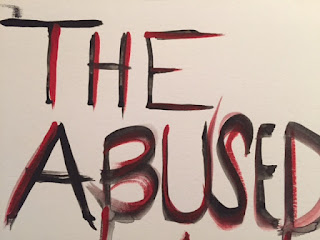How to Write a Page-Turner
I get asked all of the
time, “How do I write a page-turner?” My answer may sound simple, but it’s not
easy to do. The main ingredient to writing a page-turner is to create constant
intrigue. Your reader must be interested and intrigued enough to want to keep
reading.
How do you create
intrigue?
Tip #1: Show don’t tell. Last night I read a chapter from The Abused. “I
love the way you built up the tension. How did you do it?” So let me give you
the set up scene from the book…
On this outing, Frank was in his usual
laid-back mood. Jonesy had gotten up early ready to jog. They were standing in
front of the morning fire watching the gray tin coffee pot that sat on the
grill begin to bubble up. Jonesy wore a green jogging suit, and Frank had on a
woolen shirt with Levi’s. He stood with his hands in his pockets fighting off
the morning chill.
“So, what’s the plan my man,” asked
Frank.
“Do you always have to say that?”
“Yup.”
“Christ Frank you sound like a moron.”
“Thanks!” chuckled Frank.
The insult never bothered Frank. He
knew Jonesy was chiding him.
“I’m taking a run. How bout you?”
Frank laughed, “Um no.”
“Fuck Frank you’re going to fall over
some day from laziness and too much cholesterol.”
Frank grabbed the iron skillet and held
up the eggs, “Tell you what! You take your damn jog and by the time you get
back breakfast will be ready. That is if I don’t die of a heart attack.”
“Eh, fuck you!” said Jonesy as he
turned to jog off.
“See you later Lucy,” called Frank.
Jonesy held up his middle finger and
flipped off Frank, who just laughed again. The morning rolled on, and Frank
began to scramble eggs. He set the bacon on the grill. BBQ bacon tasted the
best. Then he began making hash browns from the frozen packs where the potatoes
were already squared off. He didn’t like frozen hash browns as much as the real
thing but when camping and having limited storage space, he would settle for
it.
He
had just sat down for a sip of coffee when campers started gathering at the
edge of the trailhead. A lot of tittering and talk was going on. Frank’s “Spidey
sense” went up. He wondered what was going on. People seemed distressed. A woman walked past, and Frank stood up.
“What’s
going on?”
The
woman shook her head. “Some guy fell off the trail.”
Frank
became alarmed. Fear simmered inside of him like the coffee beginning to brew.
He wasn’t sure if he should go look or just blow it off. “No way,” he thought. Anxiety grew in him
like multiplying bacteria. He slowly started to make his way toward the crowd.
People were talking. He heard one man say, “Yeah, he’s like crushed.” Now Frank
felt even more concerned. Crushed? That didn’t sound good at all.
Finally, riding on a wave of sheer
panic, Frank got to the edge and could see down. As his eyes focused on the
mangled body below, he knew … within a second he turned and vomited on the
dirt. Jonesy was dead.
His best friend and companion of years –
dead and mangled on a pile of earth and rocks next to the sea.
Notice what I highlighted. I’m “showing”
what is going on and not just saying “Jonesy fell off a cliff.” The build up …
suspecting something is amiss (see red highlight). The tension conveyed through
metaphor. Fear is simmering. Anxiety growing … what is happening? Frank moves
toward the answer. Panic is consuming him. Crushed! Someone is crushed! Frank
gets his answer.
Now a new writer who doesn’t understand
the build up and tension would go straight for it – Jonesy died. This approach
would read like this:
People stirred and were talking. Frank
got curious. He wondered what was going on. He walks toward the crowd and peers
over the ledge – Jonesy’s body is at the bottom. He’s dead.
No tension and no intrigue and no
curiosity piqued. The reader is served up the answer right away. Try and think
of each and every scene you write much like life. You are rarely given answers.
You go through experiences to get answers. Describe what is happening before
the answer arrives. Put your curiosity in the readers’ minds. Show it like you
would see it unfold on a movie screen. When I write I actually see my story
unfolding in my mind’s eye. I use my words to walk the reader through the
experience.
I provide literary coaching and
editorial services. If you would like me to critique or provide analysis of
your manuscript, contact me at info@3LPublishing.com
or call 916-300-8012. I will gladly discuss your project needs and how to get
your book out of your head and onto paper.



Comments
Post a Comment